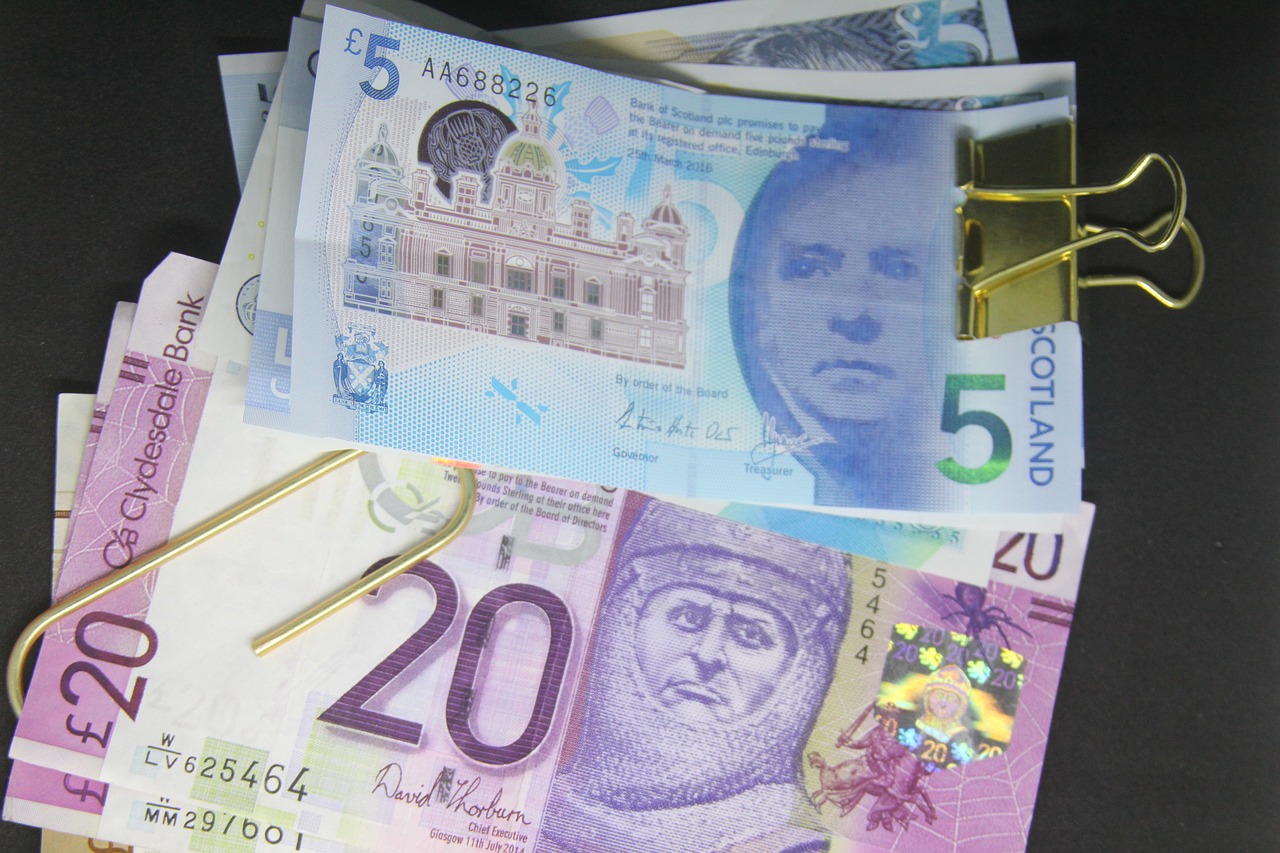Unlocking the Secrets of Transferring Money in Germany: Exploring Methods, Limits, and Fees
GPT_Global - 2024-03-18 21:30:10.0 570
What are the various methods of transferring money in Germany?
When it comes to transferring money in Germany, there are several methods that individuals can use. These methods vary depending on the needs and preferences of the sender and receiver. Here are some of the most common ways to transfer money in Germany. 1. Bank Transfers: One of the most traditional methods for transferring money in Germany is through bank transfers. This involves sending funds from one bank account to another, whether within the same bank or across different banks. Bank transfers can be done online, through phone banking or by visiting a physical bank branch. 2. Online Payment Platforms: With the rise of technology, online payment platforms have become increasingly popular for transferring money in Germany. These platforms allow users to securely transfer funds to another user's account via the internet. Popular examples in Germany include PayPal, TransferWise, and Skrill. 3. Cash Transfers: For those who prefer to send money in cash, this method is also available in Germany. Cash can be transferred using money transfer services such as Western Union or MoneyGram. The sender can physically deposit the money at an agent location, which can then be picked up by the receiver at a destination location. 4. Cheque Payments: While not as common as other methods, cheque payments are still used by some individuals in Germany. This requires writing a physical cheque and mailing it to the receiver. However, cheques can take a longer time to clear and may not be the best option for urgent money transfers. 5. Cryptocurrency Transfers: With the rise of cryptocurrency, this digital currency has also become an option for transferring money in Germany. This method involves using a cryptocurrency platform to transfer funds, which can be converted into the desired currency by the receiver. In conclusion, there are various methods available for transferring money in Germany. It is essential to consider factors such as speed, convenience, and cost when choosing the right option for your transfer needs. Whichever method you choose, ensure that it is secure and reliable for a smooth money transfer experience.

Can I transfer money from a foreign bank account to a German bank account?
If you are living or working in Germany, chances are you may need to transfer money from a foreign bank account to a German bank account. This can be for various reasons such as receiving payments from overseas clients, sending money to family members or simply managing your finances while travelling. Whatever the reason may be, the process of transferring money from a foreign bank account to a German bank account can seem daunting. But don't worry, with the right remittance service provider, it can be a quick and hassle-free experience.
Firstly, it's important to research and choose a reliable remittance service provider that offers competitive exchange rates and low transfer fees. This will help you save money on every transaction. Next, you will need to provide your foreign bank account details such as the account number, SWIFT/BIC code, and the name of the bank. These details are crucial in ensuring that the transfer is made to the correct account.
Once you have provided the necessary information, the remittance service provider will initiate the transfer process. Depending on the provider and the country you are transferring from, the transfer can take anywhere from a few hours to a few days. It's always advisable to check with the provider beforehand to get an estimated time of arrival for your funds.
Another crucial factor to consider when transferring money from a foreign bank account to a German bank account is the exchange rate. The exchange rate at the time of transfer will determine how much money you will receive in your German account. Therefore, it's important to choose a remittance service provider that offers competitive exchange rates and provides real-time updates on currency fluctuations.
Finally, once the transfer is complete, you will receive a confirmation from the remittance service provider. Make sure to keep this confirmation for your records. It's also advisable to inform the recipient in Germany about the incoming transfer so they can keep an eye out for the funds in their account.
In conclusion, transferring money from a foreign bank account to a German bank account may seem daunting at first, but with the right remittance service provider, it can be a smooth and cost-effective process. Just remember to do your research, provide accurate information and keep track of the exchange rate. So the next time you need to transfer money to Germany, you can do it with confidence and ease.
How long does it take to transfer money in Germany?
In Germany, transferring money to another person or account is a relatively quick and efficient process. The exact amount of time it takes to transfer money in Germany can vary depending on various factors, but generally it can take anywhere from a few minutes to a couple of business days.
If you are using an online remittance service, the transfer can be completed within minutes. Most banks in Germany offer instant transfers through their online banking platforms, which allows for quick and convenient money transfers.
The speed of the money transfer may also depend on the method of payment. For example, if you are transferring money through a bank wire transfer, it may take 1-2 business days for the funds to be received by the recipient. However, if you are using a debit or credit card, the money can be transferred instantly.
Another factor that can affect the duration of a money transfer in Germany is the time of day the transfer is initiated. Transfers made during regular banking hours will typically be processed faster than those made after hours or on weekends, as banks may have different processing times for transactions made during non-working hours.
It's important to note that international money transfers may take longer to process due to additional security measures and currency exchange processes. Generally, it can take 2-5 business days for an international transfer to reach the recipient's account.
In summary, the length of time it takes to transfer money in Germany can vary depending on the method of payment, the time of day the transfer is initiated, and whether it is a domestic or international transfer. However, with the advancement of technology and online remittance services, most transfers can be completed within just a few minutes.
Is there a limit on the amount of money that can be transferred in Germany?
Germany is known for its strong economy and efficient banking system, making it a popular destination for international money transfers. But is there a limit on the amount of money that can be transferred in Germany? The answer is yes, but it depends on the type of transfer and the recipient's bank account.
For transfers within the European Union (EU) or European Economic Area (EEA), there is no limit on the amount of money that can be transferred. This is because these transfers fall under the Single Euro Payments Area (SEPA) and are considered domestic transfers. SEPA transfers are usually processed within one business day and incur low fees, making them a convenient option for individuals and businesses.
However, for international transfers outside of the EU or EEA, German banks may impose limits on the amount of money that can be transferred. These limits vary depending on the bank and the country of the recipient. It is important to check with your bank to determine the specific limits and any additional fees that may apply.
There are also restrictions on sending money to certain countries, such as those with high levels of political unrest or economic instability. In these cases, banks may limit or even block the transfer of funds to protect against potential fraudulent activities. It is advisable to check with your bank or a remittance service provider before attempting to send money to these countries.
In addition, the German Federal Financial Supervisory Authority (BaFin) has set regulations on the maximum amount of cash that can be transferred into or out of Germany. Individuals are not allowed to bring or take more than 10,000 euros in cash when entering or exiting the country. This regulation aims to prevent money laundering and other illegal activities.
In conclusion, while there is no limit on the amount of money that can be transferred within the EU or EEA, there may be restrictions for international transfers and certain countries. It is important to check with your bank or a remittance service provider to ensure a smooth and efficient transfer of funds. And remember, always follow the rules and regulations set by the authorities to avoid any complications or delays in your money transfers.
Are there any fees associated with transferring money in Germany?
Transferring money in Germany can be quick, easy and affordable. However, there may be some fees associated with the process. It is important to understand these fees before making a decision on which service to use for your remittance needs.
The first fee to consider is the exchange rate. When sending money to another country, the currency conversion rate plays a major role in the total cost. Some remittance companies offer competitive exchange rates while others may have higher markups. It is important to compare rates from different providers to ensure you are getting the best deal.
Another potential fee is the transaction fee. This is the fee that the remittance company charges for their services. It can vary depending on the amount of money being transferred, the transfer method and the destination country. Some companies offer low or even zero transaction fees for certain transfers, so it’s worth shopping around.
There may also be additional fees for certain transfer methods. For example, if you choose to transfer money using a credit or debit card, the remittance company may charge an extra fee. Bank transfers may also incur additional costs, such as intermediary bank fees. Always check with your chosen provider about any additional fees for specific transfer methods.
If you are transferring large amounts of money, you may also encounter maximum limit fees. This means that there is a cap on the amount you can transfer at one time. If you need to send more than this limit, you may have to make multiple transfers or pay an additional fee for a higher limit.
Lastly, it is important to note that some remittance providers may charge hidden or undisclosed fees. These could include markup on exchange rates, additional processing fees, or fees for cancellation or modification of a transfer. Always read the fine print and ask for clarification if necessary.
In conclusion, although there may be fees associated with transferring money in Germany, it is possible to find affordable and transparent options. Be sure to compare rates and fees from different providers to choose the best option for your specific needs. With the right remittance service, you can send money to loved ones or make international payments without breaking the bank.
About Panda Remit
Panda Remit is committed to providing global users with more convenient, safe, reliable, and affordable online cross-border remittance services。
International remittance services from more than 30 countries/regions around the world are now available: including Japan, Hong Kong, Europe, the United States, Australia, and other markets, and are recognized and trusted by millions of users around the world.
Visit Panda Remit Official Website or Download PandaRemit App, to learn more about remittance info.



